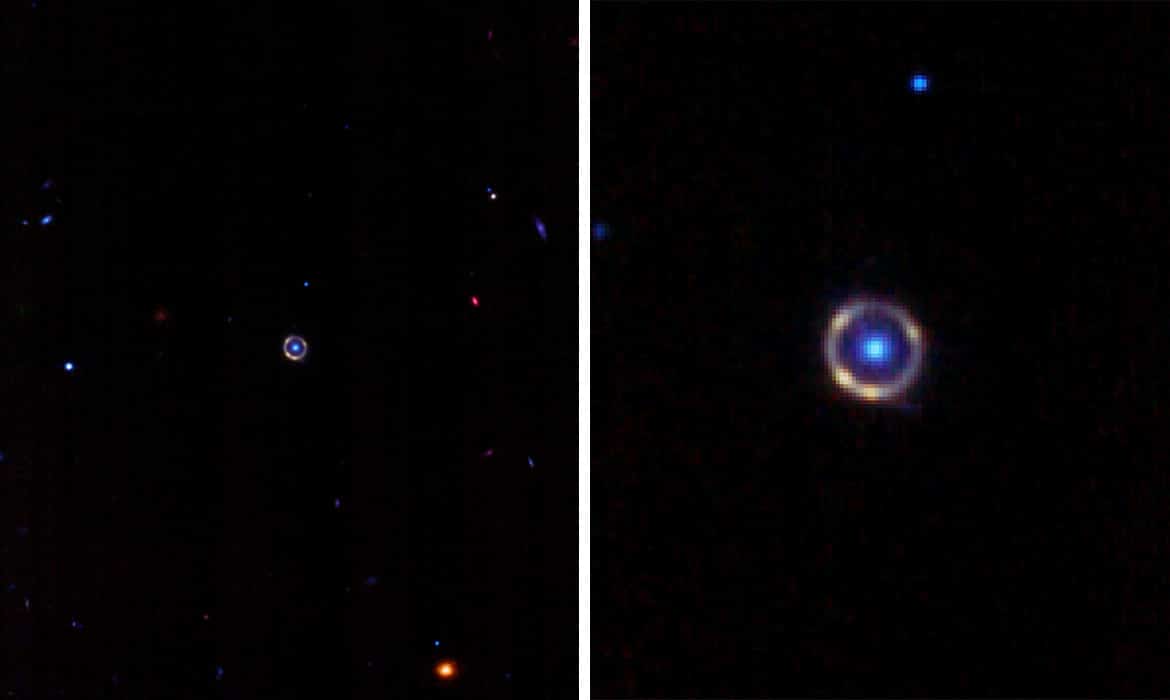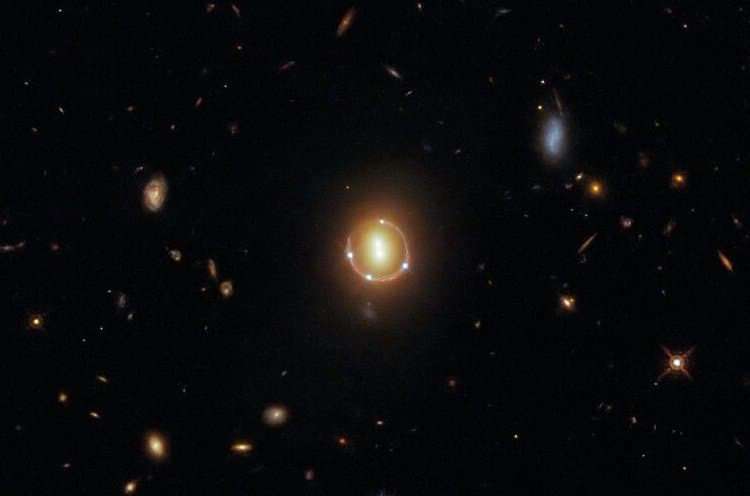
From capturing spectacular spiral galaxies to searching for life on other planets to revealing auroras on Jupiter, the James Webb Space Telescope (JWST) seems to be unstoppable in finding proof of incredible celestial bodies beyond our stratosphere. The latest of discoveries is the clearest image of possibly the most perfect and most complete Einstein ring galaxy that traveled around 12 billion light-years to get to us.
Spaceguy44, a Redditor, astronomer, and graduate student, posted the image on August 23 with an explanation as to what it is. The photo was taken by JWST’s MIRI detector, then colorized and aligned by Spaceguy44. We are looking at two galaxies; one galaxy is the ring shape, another is the blue dot in the center. But not all is as it seems—there is no ring-shaped galaxy, but instead a galaxy whose image has been warped.
The resulting warped image is known as an Einstein ring, a special kind of gravitational lensing. NASA states, “The simplest type of gravitational lensing occurs when there is a single concentration of matter at the center, such as the dense core of a galaxy. The light of a distant galaxy is redirected around this core, often producing multiple images of the background galaxy.” An example of gravitational lensing is Hubble’s image of Abell 370. Spaceguy44 explains on Reddit that if you’d like to see this effect in action, the stem and base of a wine glass replicate this effect nearly perfectly.
In many cases of gravitational lensing, though, the circle of light is often clumpy, incomplete, and asymmetrical, making the “complete or almost-complete circle of light” that characterizes Einstein rings so special and unique. Other images of Einstein rings have been captured before, like a Hubble image of 2M1310-1714 from August 2021, but none have seemingly been as perfect and complete as this new image from the Redditor. The galaxy that has been formed into the nearly perfect ring, SPT-S J041839-4751.8 (J0418 for short), “would probably look like most distant galaxies: a small blob of light” says Spaceguy44. In fact, astronomers have reconstructed an image of the galaxy that proves his statement. The fact that the background galaxy, J0418, and JWST were so perfectly in line to capture this image is spectacular.
When capturing galaxies, an effect called gravitational lensing can occur. This is when a massive foreground galaxy warps the image of a background galaxy, resulting in multiple images of the background galaxy.
A rarer case of gravitational lensing is called an Einstein ring, where the warped image of the background galaxy forms a perfect, or nearly perfect, ring.

Photo: ESA/Hubble & NASA, T. Treu
Excitingly, a Redditor, astronomer, and graduate student who goes by Spaceguy44 posted an image captured by the James Webb Space Telescope of possibly the most perfect Einstein ring ever seen.
h/t: [Science Alert]
Related Articles:
James Webb Telescope Discovers Oldest Galaxy Ever Observed
80-Mile-Wide Comet Hurtling Towards Earth Captured by NASA’s Hubble Telescope
James Webb Space Telescope Captures Spectacular Auroras on Jupiter

